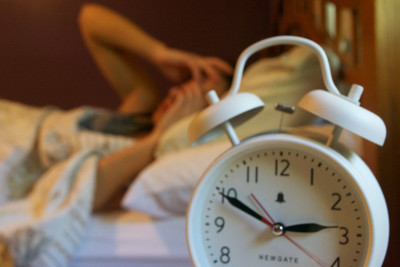Experts shed light on insomnia
STORY BY OLIVIA LITTLE
It’s 4 a.m. and you’re wide-awake. You have an 8 a.m. class tomorrow. You’ve been lying in your bed for hours, fighting with yourself, trying to turn off your mind and fall asleep. Now with frustration setting in, it’s not likely that you’re going to even get a couple hours of rest.
Sound familiar? It’s called insomnia.
Awais Awan, a former Sheridan student, knows this scenario all too well. Awan, 24, has been dealing with sleep issues for about six years.
“It doesn’t matter what time it is, 3 a.m., 4 a.m., your mind is awake,” said Awan. “I just can’t stop thinking, that’s my problem.”
Along with sleeping pills, he has tried a variety of other methods to improve his sleep schedule.
“Someone told me to try different breathing exercises, so I tried that,” said Awan. “It doesn’t really help.”
He says that after trying for so long, he has given up and now he’s just trying to live with it.“First it would take a couple hours to fall asleep, but then it would get to a point where I would just stop trying,” said Awan.
The longest he has gone without sleep is three days straight.
“When you’re awake for so long, your words will start to slur and you’re just not on your A game. You can’t even think of proper sentences when you’re talking,” said Awan.
Often college students with insomnia don’t know the proper treatment for it and don’t realize that what they are doing in their everyday lives could actually be contributing to it.
Dr. Nelson Byrne, a Mississauga psychologist, and his trainee, Danielle Blackmore PhD, say that technology has a big impact.
“Everyone carries their smartphone, or their BlackBerry, or laptops. We all use it at night because often times that’s the only time we get to use it cause we’re busy otherwise,” said Byrne.
“Younger people will play video games before bed, maybe chat with friends online, and watch YouTube videos, text their friends. All of these devices are known to actually interfere with people’s sleep.”
Blackmore says that it’s the blue light that affects our circadian rhythm, meaning how our body will respond to natural light and cause us to wake up over the day.“Blue light can alter your circadian rhythm, sending a wakeful signal and making us more alert.”
They suggest that students avoid using technology two to three hours before bed, or turn down the light if they are using them.
Another factor that can affect your sleep is your environment.
“Whenever you’re pairing your bed with something other than sleeping, you’re training yourself that your bed isn’t a place of rest,” said Blackmore. “That’s a really big thing, especially for college students who are living in dorms and they don’t have a lot of space to work with. Often they’ll end up working in their bed. But then you’ll pair your bed with the stress of trying to work on your final exams.”
Byrne and Blackmore say that students can often think that they have insomnia, when they actually have what’s called sleepiness.
“Probably the bigger problem in the college population is sleepiness,” said Byrne. “Often times the sleepiness that impacts functioning in that particular population, is due to behavioural choices that result in lack of sleep, not so much an inability to sleep.”
Sleepiness is common among college students because of their hectic schedules and behavioural habits.“If you think about a standard college student, they might have a class at 8:30. They might go out to a party until four in the morning, on say a Sunday and then have to get up super early the next day, so it fluctuates a lot,” said Blackmore. “You can kind of think of it as the constant state of jet lag, almost in some respects, if you’re changing that so frequently.”
With insomnia, it is not by choice.
“It happens even though they have a lot of opportunity for sleep, so someone would be sitting there in bed and they’re unable to sleep,” said Blackmore.
One symptom of insomnia that health providers look for is having problems falling asleep at least three nights a week for three months.
Students will turn to sleeping pills for insomnia, however this is not going to help for the long-term.
“If you go to a family doctor, very frequently what people will get is either sleeping medication, or a short-acting anxiety medication. They can both help in the short term; short term being a maximum of four weeks,” said Byrne.“Unfortunately, because there are no resources elsewhere to receive appropriate treatment, people often end up staying on these medications for the long term, which in fact, can actually make the sleep problem worse.”
Byrne’s clinic in Mississauga offers short-term intervention through cognitive behavioural therapy, which is the leading recommended treatment for insomnia.
“Cognitive behavioural therapy essentially focuses on changing behaviours that are not helpful and recognizing and changing thoughts that are not helpful,” said Byrne.
This means trying to set up a more regular sleep schedule, changing catastrophic mindsets and thoughts towards sleep, and dealing with any coexisting conditions such as depression, anxiety, etc.
Blackmore suggests if students are interested in improving their sleep that they read Quiet Your Mind and Get to Sleep by Richard Bootzin, Colleen E. Carney and Rachel Manber.
Byrne and Blackmore can be contacted at drbyrne@connectcbt.com, if students have any questions or would require treatment for insomnia.
The office is located at 168 Queen St. S., Mississauga.





